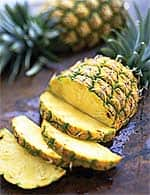Life Extension Magazine®
If you ever wonder why pharmaceutical companies (and their collaborators at the FDA) are so biased against dietary supplements, the article you are about to read provides an eye-opening answer. Americans have long been deceived to think that prescription drugs are the only effective remedies for common age-related disorders. Data about natural therapies remains largely censored, as widespread dissemination of this knowledge would reduce demand for highly profitable arthritis medications. While pharmaceutical companies earned billions of dollars selling anti-inflammatory drugs, the side effects caused by this class of medications sent millions of Americans to hospitals and mortuaries. As body counts mounted (and patents expired), drug companies brought out so-called “safer” arthritis drugs like Vioxx® and Bextra® that were later withdrawn due to lethal adverse reactions. Virtually all non-steroidal anti-inflammatory drugs (NSAIDs) now carry a blanket warning about potential increased risks of heart attack and stroke with their use.
During these sordid decades of medical history, several natural alternatives have been available that were shown to work as well as NSAID drugs without the side effects. One of the most overlooked anti-inflammatory nutrients, however, may be the plant enzyme bromelain. Perhaps the incredibly low price of bromelain has precluded even natural health enthusiasts from recognizing its multi-faceted benefits. Over the past seven years, several human clinical studies reveal that bromelain-based formulations are as effective and potentially even more effective than anti-inflammatory prescription drugs in relieving pain and inflammation. This article reveals recent discoveries showing a low-cost natural alternative to expensive prescription anti-inflammatory drugs that could help thousands of Americans suffering from pain and inflammation each year. Back in 1982, Durk Pearson and Sandy Shaw wrote about the benefits of a plant enzyme called bromelain in their best-seller book Life Extension. Derived from pineapple stems, bromelain is finally gaining recognition for its natural pain-relieving effects. Scientists have recently shown that bromelain provides powerful anti-inflammatory properties without the problems associated with drug therapy.1-3 Pain reliever drugs can be prescribed or bought over-the-counter, but chronic use can lead to side effects such as gastric ulcers and liver-kidney damage. Bromelain has long been known to contain powerful proteolytic (protein-digesting) enzymes, which are beneficial in digestive enhancement. New studies reveal that enteric-coated bromelain provides potent systemic anti-inflammatory effects. Athletes are increasingly turning to bromelain to help manage sports injuries, and those undergoing surgery are using it to speed their recovery time.4,5 Bromelain also holds further promise in managing varied conditions such as sinusitis and inflammatory bowel disease.6,7 In addition to its potent anti-inflammatory effects, scientists have recently discovered that bromelain exhibits tumor-fighting properties which are now being explored in the hope of finding a new anti-cancer drug.8 Reducing the Pain of OsteoarthritisPoor joint health (osteoarthritis) is a widespread cause of disability in the United States, especially in the elderly. Joint pain prompts many of us to reach for prescription drugs or over-the-counter non-steroidal anti-inflammatory drugs (NSAIDs) to relieve the pain. However, the withdrawal of prescription drugs, such as Vioxx® and Bextra® from the market after they were found to raise the risk of heart attacks and stroke; and the fear of gastrointestinal side effects from over-the-counter therapies, such as ibuprofen; pave the way for nutritional remedies in supporting optimum joint health. Numerous studies have shown that bromelain can be as effective as anti-inflammatory drugs for dealing with the pain of osteoarthritis.1 Direct head-to-head trials have demonstrated greater levels of improvement and decreased dependency on pharmaceuticals with bromelain.
In a recent blinded study from Germany, researchers divided 90 patients with painful osteoarthritis of the hip into two groups: one half receiving an oral enzyme preparation containing bromelain for six weeks, while the other half received the anti-inflammatory drug diclofenac (sold under the brand name Voltaren® and generic names). They found that the bromelain preparation was as effective as diclofenac in standard scales of pain, stiffness and physical function, and better tolerated than the drug comparator. The researchers concluded, “[the bromelain preparation] may well be recommended for the treatment of patients with osteoarthritis of the hip with signs of inflammation as indicated by a high pain level.”2 Another study comparing a standardized commercial enzyme preparation containing bromelain with diclofenac reached the same conclusion. The study reported that the supplement containing bromelain (90 mg, three times daily) to be as effective as diclofenac (50 mg, twice daily) in improving the symptoms of osteoarthritis of the knee. Patients reported comparable reductions in joint tenderness, pain and swelling, and improvement in range of motion at the end of the study. The investigators found bromelain to be as good as diclofenac on a standard pain assessment scale and to be better than the drug in reducing pain at rest (by 41% for bromelain versus 23% for the drug), improving restricted function (by 10% for bromelain versus 0% for the drug), being rated by more patients in improving symptoms (24% for bromelain versus 19% for the drug), and being evaluated by more physicians as having good efficacy (51% for bromelain versus 37% for the drug). In summary, the investigators determined bromelain to be an effective and safe alternative to NSAIDs such as diclofenac for painful osteoarthritis.3 In further research from the United Kingdom, a three-month study looked at the dose-dependent effects of bromelain, either 200 mg or 400 mg a day in volunteers with mild acute knee pain. Pain evaluation was based on patient symptom scores, which were reduced by 41% in the 200 mg bromelain group and by 59% in those receiving 400 mg of bromelain, indicating a dose-response relationship. This was also observed for scores of stiffness and physical function, which decreased significantly in the higher-dose bromelain group compared with those receiving 200 mg. The researchers also noted that overall psychological well-being was significantly improved in both bromelain groups, leading to their conclusion that this natural therapy may be effective in improving general well-being as well as symptoms in otherwise healthy adults suffering from mild knee pain.10 Together, these findings reveal that bromelain may provide safe, effective relief from acute and chronic joint pain caused by arthritis and other conditions.
Healing InjuriesBromelain’s anti-inflammatory properties have led to its main recognized medicinal use – as an effective pain reliever and healing aid in the treatment of minor injuries, such as sprains, strains, and other trauma. Bromelain’s efficacy was studied in an open-case observation study of patients who had suffered blunt trauma to the musculoskeletal system. An orthopedist treated 59 subjects with conventional therapeutics plus bromelain for one to three weeks. Bromelain significantly reduced the patients’ swelling, pain at rest and in motion, and tenderness at the site of injury. Not only was bromelain effective, it was also well tolerated.11 Speeding Post-Surgical HealingIn addition, bromelain may offer important support for healing and pain relief after surgery. Investigators administered a combination of bromelain, trypsin, and rutoside (rutin) to patients for two weeks following surgery to fix fractured long bones. Compared with surgical patients who did not receive the supplement, the bromelain-treated group showed a remarkable reduction in postoperative swelling. Additionally, the supplemented individuals required less pain medication during their recovery period, indicating a significant analgesic effect and more rapid and comfortable recovery.5 Sinus SupportScientists have also investigated the efficacy of bromelain in offering welcome relief from sinusitis, the painful inflammation of the sinus cavities typically caused by bacterial, fungal, or viral infection. Sinusitis often follows an upper respiratory infection and can manifest with symptoms such as nasal congestion and discharge, postnasal drip, headache, cough, and sore throat.
Researchers compared bromelain with standard therapies, both alone and in combination, in 116 children under the age of 11 suffering from acute sinusitis. Remarkably, patients treated with bromelain alone experienced a recovery that was significantly faster than patients in any of the other groups.6 These findings confirmed those from an earlier study showing that bromelain resolved inflammation of the nasal mucosa in 85% of adults receiving bromelain, while only 40% of adults receiving placebo showed a similar improvement.12 A recent research review noted that bromelain may offer benefits for sinus health by thinning nasal secretions and inhibiting the production of inflammatory prostaglandins.13 In fact, the German Commission E has approved bromelain for the treatment of sinus and nasal swelling following ear, nose, and throat surgery or trauma. Inflammatory Bowel DiseasePreliminary findings suggest that bromelain may also have applications in the management of the inflammatory bowel disease ulcerative colitis, which is characterized by abdominal cramping and pain, diarrhea, and weight loss. In 2000, the Annals of Internal Medicine published an anecdotal report of two patients suffering from ulcerative colitis who had not achieved significant improvement with conventional therapy, but benefitted from bromelain supplementation. Bromelain supplementation helped relieve symptoms such as frequent diarrhea; and follow-up endoscopy studies revealed healing of the gastrointestinal mucosa.7
This encouraging report prompted researchers at North Carolina’s Duke University to explore bromelain’s effects on an experimental mouse model of inflammatory bowel disease. Animals treated with orally administered bromelain beginning at five weeks of age displayed decreased incidence and severity of spontaneous colitis. Bromelain supplementation also decreased the clinical and histological manifestations of inflammatory bowel disease in animals with existing colitis. The investigators concluded that their findings justified further studies of bromelain in the management of inflammatory bowel disease.14 Skin DisordersBromelain is also effective in treating a skin disorder called pityriasis lichenoides chronica, which is characterized by the appearance of long-lasting, asymptomatic skin lesions. The disease has no known cause and treatment outcomes have proved unpredictable and non-optimal.15 In a recent study, investigators treated eight patients who had this disorder with bromelain for three months. At the end of the treatment period, all patients showed complete clinical recovery with no adverse effects. And although two patients relapsed five to six months after stopping therapy, they responded again to another brief cycle of therapy. The investigators concluded that the efficacy of bromelain “could be related to its anti-inflammatory, immuno-modulatory, and/or antiviral properties.”15 Fighting CancerPerhaps the most exciting news about bromelain comes from the front lines of cancer research. Several studies suggest that bromelain may hold an important role as a novel anticancer therapy. Scientists employed an animal model system to look at bromelain’s ability to fight several different types of cancer. First, laboratory animals were inoculated with cancer cells derived from bone, breast, blood (leukemia), lung, or skin (melanoma). Next, the scientists administered bromelain to the animals. The animals were compared with similar animals that were also inoculated with tumor cells, but did not receive bromelain. Bromelain significantly increased the animals’ survival rates from all the cancers except melanoma. Furthermore, bromelain significantly reduced the number of lung metastases in the animals inoculated with lung cancer cells, suggesting that it might play an important role in fighting cancer growth.8
A recent study conducted in mice further points to bromelain’s anticancer effects. Scientists utilized a mouse model of cancer, in which skin tumors were induced by the application of two toxic chemicals. Treating the animals with bromelain prior to the two cancer-inducing chemicals delayed the onset of tumor development, reduced the cumulative number of tumors, tumor volume, and the average number of tumors per mouse. The scientists believe that bromelain protected against cancer by inducing proteins related to apoptosis (programmed cell death) and by inhibiting nuclear factor-kappab (NF-kb), a proinflammatory protein involved in cancer and many other disease processes.16 While much remains to be learned about bromelain’s applications in augmenting anticancer therapy, scientists have proposed that bromelain may work through several mechanisms; including boosting the immune system’s anticancer activity, inhibiting tumor metastasis (spread to other locations), and decreasing tumor growth and invasive potential.17 Supplementing with BromelainThe evidence of bromelain’s efficacy is based on studies of its use as nutritional supplement, extracted from the stems of the pineapple plant. Although pineapple is a healthful food, it is not practical to acquire therapeutic amounts of bromelain merely by consuming pineapple fruit. A wide range of dosing recommendations exists for bromelain. For adults, the German Commission E recommends 80-320 mg of bromelain, two to three times per day.18 Other scientists have noted that the typical oral bromelain dosage is within the range of 500-1,000 mg per day, with up to 2,000 mg/day commonly used.13 For delayed-onset muscle soreness following an intense exercise regime, 300 mg of bromelain three times daily has been used.19 Scientists have noted that 200-400 mg of bromelain daily for 30 days is effective for mild acute knee pain.10 The protein-digesting potency of bromelain products is often measured in gelatin-digesting units (GDU) or in milk-clotting units (MCU). Experts generally advise consuming enteric-coated bromelain supplements to benefit from its anti-inflammatory effects. To enhance food digestion, non-coated bromelain tablets, powder, or capsules can be consumed along with other digestive enzymes, such as lipase and amylase, at meal time.
Safety CautionsPeople with known allergies to pineapples or pineapple juice should not take bromelain. According to the National Library of Medicine, bromelain could theoretically increase the risk of bleeding when combined with drugs or natural agents that increase the risk of bleeding; such as aspirin, warfarin (Coumadin®), clopidogrel (Plavix®), ibuprofen (Advil®), ginkgo, or garlic. In theory, bromelain could increase the anti-inflammatory effects of nonsteroidal anti-inflammatory drugs (NSAIDs) and could cause a larger than expected fall in blood pressure from angiotensin-converting enzyme (ACE) inhibitors such as captopril (Capoten®).18 Human studies suggest that bromelain may increase the absorption of some antibiotics, such as amoxicillin and tetracycline, increasing their levels in the body. Individuals with existing medical conditions and those who use medications should consult a physician before beginning bromelain supplementation.18 ConclusionBromelain’s potent anti-inflammatory actions hold a broad spectrum of applications in human health. Not only can bromelain help relieve the pain and inflammation of sprains, injuries, arthritis, and surgery, but intriguing evidence points to its value in alleviating sinusitis and inflammatory bowel disease and even complementing anticancer therapies. This versatile, effective supplement promises to be a useful addition to every family’s medicine cupboard. If you have any questions on the scientific content of this article, please call a Life Extension Wellness Specialist at 1-800-226-2370. |
||||||||||
| References | ||||||||||
1. Brien S, Lewith G, Walker A, Hicks SM, Middleton D. Bromelain as a treatment for osteoarthritis: a review of clinical studies. Evid Based Complement Alternat Med. 2004 Dec;1(3):251-7. 2. Klein G, Kullich W, Schnitker J, Schwann H. Efficacy and tolerance of an oral enzyme combination in painful osteoarthritis of the hip. A double-blind, randomised study comparing oral enzymes with non-steroidal anti-inflammatory drugs. Clin Exp Rheumatol. 2006 Jan-Feb;24(1):25-30. 3. Akhtar NM, Naseer R, Farooqi AZ, Aziz W, Nazir M. Oral enzyme combination versus diclofenac in the treatment of osteoarthritis of the knee—a double-blind prospective randomized study. Clin Rheumatol. 2004 Oct;23(5):410-5. 4. Kerkhoffs GM, Struijs PA, de Wit C, Rahlfs VW, Zwipp H, van Dijk CN. A double blind, randomized, parallel group study on the efficacy and safety of treating acute lateral ankle sprain with oral hydrolytic enzymes. Br J Sports Med. 2004 Aug;38(4):431-5. 5. Kamenícek V, Holán P, Franĕk P. Systemic enzyme therapy in the treatment and prevention of post-traumatic and postoperative swelling. Acta Chir Orthop Traumatol Cech. 2001;68(1):45-9. 6. Braun JM, Schneider B, Beuth HJ. Therapeutic use, efficiency and safety of the proteolytic pineapple enzyme Bromelain-POS in children with acute sinusitis in Germany. In Vivo. 2005 Mar-Apr;19(2):417-21. 7. Kane S, Goldberg MJ. Use of bromelain for mild ulcerative colitis. Ann Intern Med. 2000 Apr 18;132(8):680. 8. Baez R, Lopes MT, Salas CE, Hernandez M. In vivo antitumoral activity of stem pineapple (Ananas comosus) bromelain. Planta Med. 2007 Oct;73(13):1377-83. 9. Available at: http://en.wikipedia.org/wiki/Bromelain. Accessed October 29, 2007. 10. Walker AF, Bundy R, Hicks SM, Middleton RW. Bromelain reduces mild acute knee pain and improves well-being in a dose-dependent fashion in an open study of otherwise healthy adults. Phytomedicine. 2002 Dec;9(8):681-6. 11. Masson M. Bromelain in blunt injuries of the locomotor system. A study of observed applications in general practice. Fortschr Med. 1995 Jul 10;113(19):303-6. 12. Taub SJ. The use of bromelains in sinusitis: a double-blind clinical evaluation. Eye Ear Nose Throat Mon. 1967 Mar;46(3):361-2 passim. 13. Helms S, Miller A. Natural treatment of chronic rhinosinusitis. Altern Med Rev. 2006 Sep;11(3):196-207. 14. Hale LP, Greer PK, Trinh CT, Gottfried MR. Treatment with oral bromelain decreases colonic inflammation in the IL-10-deficient murine model of inflammatory bowel disease. Clin Immunol. 2005 Aug;116(2):135-42. 15. Massimiliano R, Pietro R, Paolo S, Sara P, Michele F. Role of bromelain in the treatment of patients with pityriasis lichenoides chronica. J Dermatolog Treat. 2007;18(4):219-22. 16. Kalra N, Bhui K, Roy P, et al. Regulation of p53, nuclear factor kappab and cyclooxygenase-2 expression by bromelain through targeting mitogen-activated protein kinase pathway in mouse skin. Toxicol Appl Pharmacol. 2007 Aug 23 [Epub ahead of print]. 17. Maurer HR. Bromelain: biochemistry, pharmacology and medical use. Cell Mol Life Sci. 2003 Aug;58(9):1234-45. 18. Available at: http://www.nlm.nih.gov/medlineplus/druginfo/natural/patient-bromelain.html. Accessed October 29, 2007. 19. Stone MB, Merrick MA, Ingersoll CD, Edwards JE. Preliminary comparison of bromelain and ibuprofen for delayed onset muscle soreness management. Clin J Sport Med. 2002 Nov;12(6):373-8. |







